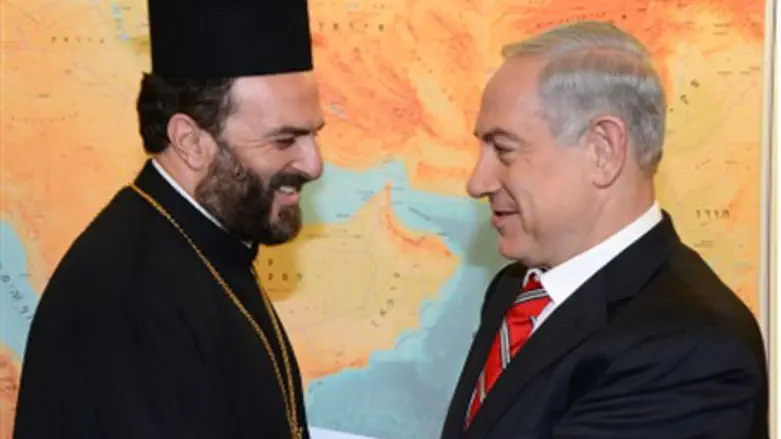
Interior Minister Gideon Saar has instructed the Population, Immigration and Border Authority (PIBA) to allow the registration of a new nationality – Aramaean – in the identity cards of Christian citizens who were registered as Arabs until now.
In a letter to PIBA Director Amnon Ben-Ami, Saar wrote that he has “received three opinions according to which the existence of the Aramaean nationality is clear and obvious, as required by the Supreme Court's ruling.”
"The conditions required by the ruling for proving the existence of the nationality are present – including historical heritage, religion, culture, descent and language," he determined.
Saar wrote that “the registration clerks must be instructed in accordance with the Population Registry Law that a resident who first registers in the Population Registry, and who requests to be registered as an Aramaean in the nationality detail, will be able to register thus.”
Saar's decision ultimately applies to those Christians currently living in Israel who identify as Aramaean, can speak Aramaic, and are either from the Maronite, Orthodox Aramaic, Greek Orthodox, Greek Catholic and Syriac Catholic denominations. Some of them, wishing for a change of status, applied as a group to the Interior Ministry as far back as 2010 and will now finally be allowed to register as Aramaeans.
A Facebook page representing supporters of Father Gabriel Nadaf, a leader of the Aramaean minority, was ecstatic over the decision.
The decision “corrects a historic injustice that wrongly defined Israel's citizens of eastern-Christian descent as 'Christian Arabs,' although other than their spoken language, they have absolutely no connection to the Arab nationality,” he wrote.
In an emotional letter to Saar, Nadaf thanked him for Israeli society's “pluralism and its openness to absorbing religious and ethnic minorities out of love and acceptance, without any discrimination, according to the principles of democracy, individual freedom, freedom of conscience and freedom of worship.”
Father Nadaf said that the Christians wish to become “an inseparable part” of Israeli society make their voices heard “in the social, economic, academic and political sphere in the state of Israel.”
He went further and said that the decision is even more meaningful in a regional and historic perspective.
“This is the first time that a Middle Eatern state recognizes the Aramaean-Christian minority as a legitimate nationality and acts to preserve it, the teaching of its language and its absorption in society,” he wrote.
"In contrast with the region's countries, in which Christians and other minorities are systematically murdered, churches are destroyed and people are forced to hide their identities just because they are defined as Christians – while with every decade that the world progresses, the Arab countries go a decade backward – the state of Israel has made a giant lead forward.”
Nadaf is unique among Orthodox Christian leaders in that he advocates a strong connection between his community and the state – and for that he has been sanctioned by the official Greek Orthodox church, which has sought to have him defrocked.
Arab MKs have also condemned him, calling him “an agent of Zionism who seeks to divide Arabs.” Nadaf has also been threatened with violence, and even death, he told Israeli reporters. But he insists that he represents a sizable portion of the Christian Israeli community.
"We feel secure in the state of Israel,” Nadaf has said, “and we see ourselves as citizens of the state with all the attendant rights as well as obligations.”
